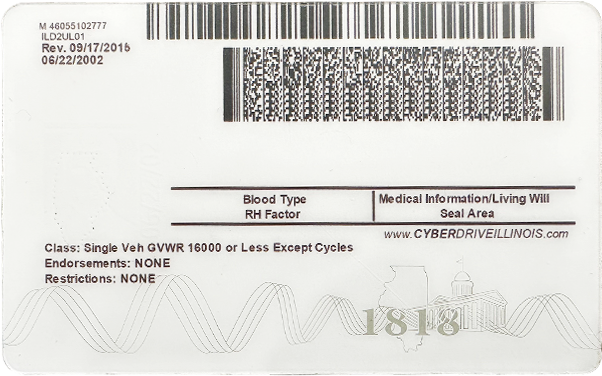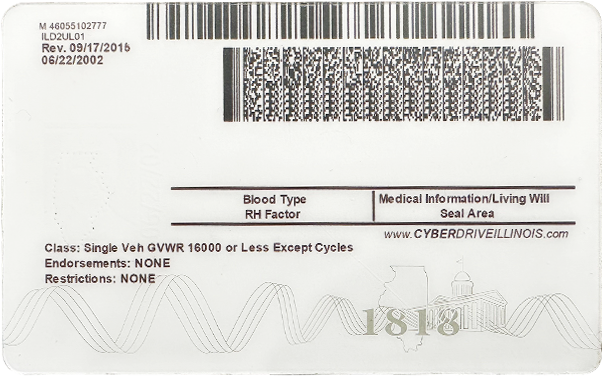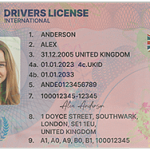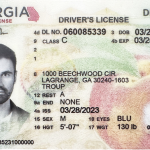The sale of fake driver’s licenses is an illegal and dangerous activity that undermines the integrity of the licensing system and poses risks to public safety. If you come across a seller of fake driver’s licenses, it is crucial to report them promptly. Here is a step – by – step guide on how to do so.
1. Gather Evidence
The first and most important step is to collect as much evidence as possible. This can include:
- Any communication with the seller, such as text messages, emails, or online chat conversations. Save these messages in their original form, as they can provide important details about the seller, their methods, and the terms of the fake license sale.
- Website URLs if the seller is operating online. Take screenshots of the website pages that advertise the sale of fake driver’s licenses. Include details such as the prices, the types of licenses offered, and any contact information provided.
- Photos or videos if you have witnessed any in – person transactions or if there is visible evidence of the fake license production, such as equipment or sample licenses.
2. Identify the Appropriate Authority
Different regions have different agencies responsible for handling reports of illegal activities related to fake documents. In most cases:
- Local law enforcement agencies, such as the police department, are a good starting point. They have the power to investigate and take action against individuals or groups involved in the sale of fake driver’s licenses. You can contact your local police station directly, either in person, by phone, or through their official website.
- In some areas, the department of motor vehicles (DMV) may also be involved in the investigation. They are the official body responsible for issuing and regulating driver’s licenses, and they can provide valuable insights and assistance in the case.
- For online sellers, cybercrime units within the police force or specialized government agencies dealing with online fraud may be more appropriate. These units are trained to handle digital evidence and track down online criminals.
3. Make the Report
Once you have identified the appropriate authority, follow these steps to make the report:
- Contact the agency using the preferred method (in – person, phone, or online). If you are reporting in person, go to the relevant office during their business hours. When reporting by phone, make sure you have all your evidence and details ready to provide a clear and concise account.
- When reporting online, look for the specific reporting forms or portals provided by the agency. Fill in all the required information accurately, including your personal details (you can choose to remain anonymous in most cases), a description of the incident, and details about the evidence you have gathered.
- Provide a detailed description of the seller. Include any information you have about their identity, such as a name (if known), physical appearance, contact information (phone number, email address, etc.), and any other relevant details like their mode of operation (whether they are operating from a physical location or online only).
- Submit the evidence you have collected. If you are reporting in person, bring copies of the evidence (such as printed screenshots or a USB drive with digital files). If reporting online, follow the instructions provided by the agency on how to upload the evidence securely.
4. Follow – up
After making the report, it is a good idea to follow up with the agency:
- Get a reference number or case number when you make the report. This will help you track the progress of your report. You can use this number to inquire about the status of the investigation with the agency.
- Contact the agency after a reasonable period (usually a few weeks) to find out if they need any further information from you or if there have been any developments in the case. Be polite and patient when following up, as these investigations can take time.
Common Problems and Solutions
Problem 1: Fear of Retaliation
Many people are afraid to report sellers of fake driver’s licenses because they fear retaliation from the criminals. This is a valid concern, but there are ways to mitigate the risk.
- Solution: Most law enforcement agencies offer the option of making anonymous reports. When you contact them, ask about their anonymous reporting procedures. In many cases, you can provide the necessary information without revealing your identity. Also, the agencies are bound by strict confidentiality laws, which means they will not disclose your identity to the suspects unless it is absolutely necessary for the investigation and with proper legal authorization.
Problem 2: Incomplete Evidence
Sometimes, you may not have all the evidence you would like to have when reporting. For example, you may only have a phone number of the seller but no other details.

- Solution: Even if your evidence seems incomplete, it is still important to make the report. Law enforcement agencies have the resources and expertise to conduct investigations and gather additional evidence. Provide them with all the information you have, no matter how small it may seem. They can use this as a starting point to build a case against the seller.
Problem 3: Unsure of the Appropriate Authority
Determining which agency to report to can be confusing, especially if you are not familiar with the local law enforcement system.
- Solution: You can start by contacting your local police department. They are usually the first point of contact for most criminal reports. If they are not the appropriate agency to handle the case, they will be able to direct you to the correct authority. You can also check the official websites of government agencies in your area for information on reporting fraud and illegal document sales.
Problem 4: Difficulty in Communicating the Report
Some people may face language barriers or find it difficult to communicate the details of the report clearly.
- Solution: Many law enforcement agencies offer language – interpretation services. When you contact them, inform them if you need an interpreter. If you are reporting online, look for options to fill in the form in your preferred language if available. You can also ask a friend or family member who is proficient in the language to help you make the report accurately.
Problem 5: Lack of Response from the Agency
There may be times when you do not receive a response from the agency after making the report.
- Solution: First, check the contact information you provided to make sure it is correct. Then, follow up with the agency using the reference or case number you were given. If you still do not receive a response, you can escalate the issue by contacting a higher – level authority within the agency or a relevant ombudsman or regulatory body that oversees law enforcement activities in your area.
Fake ID Pricing
unit price: $109
| Order Quantity | Price Per Card |
|---|---|
| 2-3 | $89 |
| 4-9 | $69 |
| 10+ | $66 |



